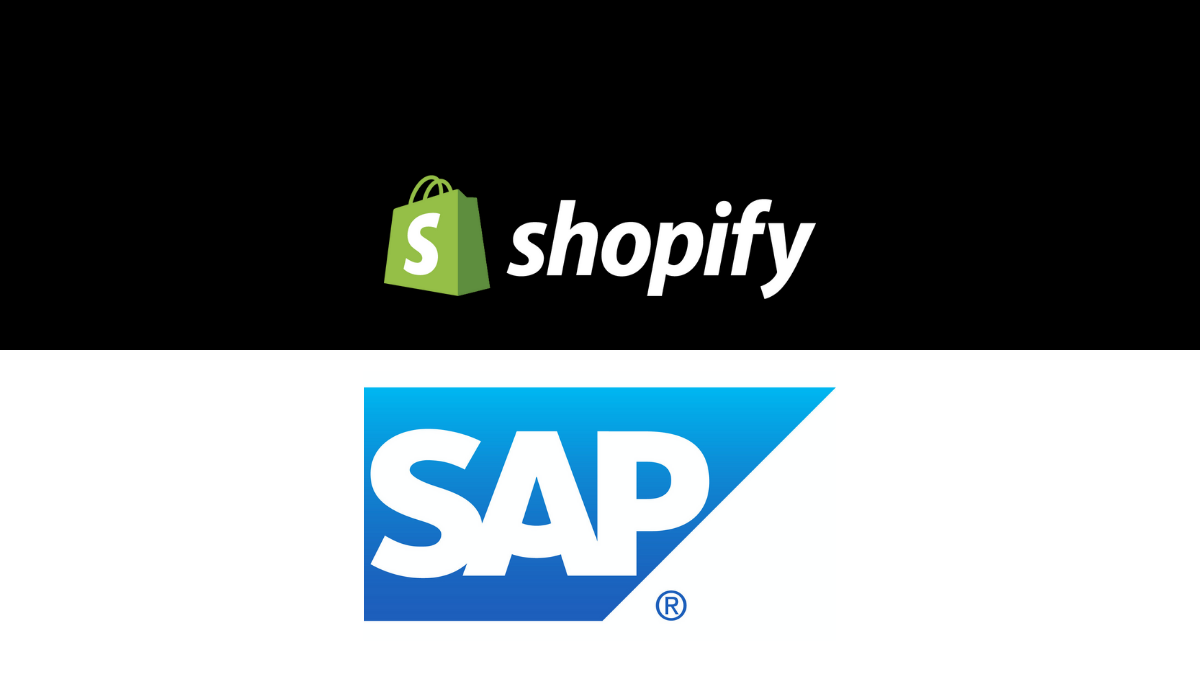A Guide to Shopify Integrations
Shopify is a powerful ecommerce platform out of the box, but to get the most out of your online store, you need to embrace the power of Shopify integrations.
Shopify integrations are add-ons that significantly increase the functionality of your store. Features include advanced stock management, email management, marketing automation and more. In this article, we are going to explore Shopify integrations in more detail. Click on one of the links below to jump to that section:
- Shopify integrations
- CRM
- ERP
- Email marketing
- Warehouse and fulfilment systems
- Frequently asked questions
Shopify integrations
The Shopify platform allows you to easily customise the features of your store. While all Shopify merchants are provided with a comprehensive range of features as standard, these are often not sufficient for larger stores with more sophisticated workflows.
This is where Shopify comes into its own. The Shopify API enables store owners to integrate third-party apps to extend store functionality. These apps are available either through the Shopify App Store or can be custom built by a developer.
APIs
An Application Programming Interface (API) essentially enable two apps written in different languages to sync and talk to each other. You use APIs every day without realising it when you send an instant message or check the weather on your phone, for example.
APIs allow developers to quickly deploy apps to share data across platforms. In the case of the Shopify App Store, developers have written apps to increase the functionality of the store and share data between platforms.
But even this has its limitations; what if you need a feature that is not currently available from a pre-built app? Well, Shopify has you covered here as well. The open API also enables a Shopify development agency like Milk Bottle Labs to create custom functionality for you so you can monitor site visitors in real-time and access sophisticated sales funnels, integrated social media campaigns and automated workflows.
CRM
Customer Relationship Management (CRM) platforms are customer service resources used to manage interactions with customers. They help you to connect data from various points in your operation, thereby giving you greater insight into customer behaviour. Most CRM platforms allow you to automate marketing campaigns and score leads, build sophisticated sales funnels, open up new sales channels and analyse customer behaviour.
So CRM and ecommerce are a natural fit. However, successfully integrating your CRM platform with your ecommerce store can be an unnecessarily complicated experience. Trying to get two platforms written in different languages to securely share data poses many problems. But the robust Shopify API allows any third-party Shopify app developer to easily integrate the platform with popular CRM solutions such as Salesforce, HubSpot and Pipedrive. Shopify can be integrated with any CRM platform that has API access.
ERP
Operators of ecommerce stores have to process a lot of business and customer data in a short period. Payments need processing, orders need picking and packing, shipping labels need printing and shipping emails sent. Done manually, these processes take up a lot of time and there are ample opportunities for error.
Enterprise Resource Planning (ERP) software allows companies to integrate several core business processes such as accounting and inventory management into a single platform. By integrating your ERP solution with your Shopify store, you can automate key workflows to speed up delivery and reduce errors.
The Shopify API allows easy integration with all leading ERP solutions including Sage, Microsoft Dynamics, Quickbooks, Zoho and SAP. But to get the best out of these integrations, consider custom integration with an experienced Shopify development service. This is because adapting your current workflow so that it works with your chosen ERP solution is likely to result in errors and inefficiencies. A custom-built solution designed specifically for the way your Shopify site operates will perform much better.
Email marketing
Email is one of the most powerful marketing channels for ecommerce store owners and Shopify has an extensive range of email integration options.
The Shopify app has basic email API integration as a standard. However, this is not going to provide enough features for a larger operator looking to create more sophisticated event-based marketing campaigns.
For this type of operator, creating a custom integration using a platform like Klaviyo will provide a more robust feature set. Klaviyo allows store owners to send personalized automated emails based on predefined customer behaviour.
Klaviyo campaigns can be triggered by dates, events, segment membership, age, gender and more. The campaigns are managed using cutting-edge data science that helps you make sense of customer behaviour to further optimise campaign performance.
Warehouse and fulfilment systems
Increased customer engagement and more targeted marketing ultimately mean more orders to fulfil. This can create problems if you don’t have robust processes and automated workflows in place to manage increased volume.
One of the issues many ecommerce businesses encounter with order fulfilment is the number of different processes involved. Another obstacle regularly faced with this is that no two companies have the same system for order fulfilment, meaning a standardised process is hard to come by.
Shopify has a range of fulfilment options in place, but these are pretty basic and they are unlikely to be suitable for larger shippers. In this case, a custom solution is almost always going to be preferable to making do with standard workflows.
Custom development will allow you to optimise the fulfilment process to meet the needs of your organisation. Solutions can be developed for both third-party and in-house fulfilment, along with integration with your chosen delivery partner.
Frequently asked questions
How many integrations does a Shopify store need?
This will differ from merchant to merchant, but, as a minimum, you should look to have at least one app to help you automate marketing and sales and another to manage back-office processes such as payment and fulfilment.
However, it is not uncommon for even a small Shopify store to have five or more integrations. Remember though that it is not the number of integrations that is important, but rather that the integrations you do have are delivering what they promised.
How do I know which integrations are right for my ecommerce store?
Fast-growing ecommerce stores often use a variety of systems during the bootstrapping phase. These are cobbled together haphazardly, but it gets the job done. Pretty soon, however, you’ll start to see inefficiencies creep in.
So when orders start backing up, customer emails go unanswered and deliveries are delayed, it may be time to start streamlining your processes by integrating your Shopify store with other platforms. The area where you are seeing the most pain will dictate which integrations to prioritise. If you’re stuck with this, get in touch with a Shopify development agency like Milk Bottle Labs.




